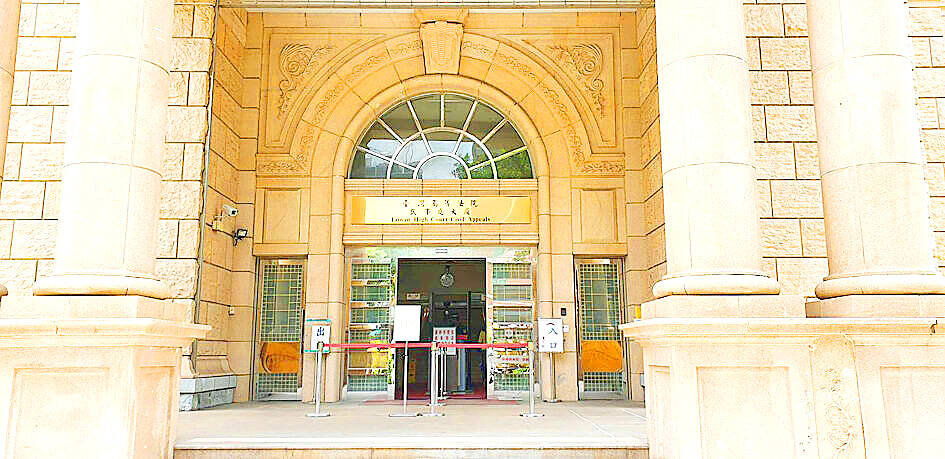The High Court yesterday rejected a request from a Japanese restaurant in Taipei that would ban the Michelin guide from secretly sending food critics and reviewing or recommending the food served there.
The lawsuit, which was filed by the restaurant Isosei (磯勢), was the second case in which the judicial system sided with the French publisher. In 2022, the Taipei District Court and the High Court ruled against Wokhei (鍋氣), a Cantonese restaurant in Taipei, which also petitioned the courts to bar the Michelin guide from sending food critics to eat and review the food.
Isosei argued that the lawsuit was filed to protect the restaurant’s reputation as well as freedom of doing business.

Photo: Yang Kuo-wen, Taipei Times
“Our philosophy in managing the restaurant is to give our chefs complete freedom to create dishes, rather than being restricted by so-called authoritative evaluation methods and criteria,” the restaurant said. “We do not agree that restaurants should be evaluated by dispatching ‘mystery shoppers’ and using only one set of criteria.”
Michelin argued that it has built its credibility in the global gastronomic community through strict and truthful evaluations, adding that it cannot possibly maintain the integrity of the evaluations by not dispatching food critics or revealing their identities ahead of time. Food critics dine at restaurants anonymously because they want to personally taste the food and experience the service, and they have the freedom to comment on the food they eat, it said.
Isosei appealed to the High Court after the Taipei District Court ruled in favor of Michelin. During the second trial the restaurant added its head chef as a new plaintiff, who petitioned to have the freedom to not serve food critics sent by Michelin.
The court upheld the district court’s decision, saying that the content published by the Michelin guide is open to criticism. The ways the guide evaluates food around the globe and recommends restaurants make it a reference book for consumers, it said, adding that the guide serves both the commercial and public interest.
“Isosei provides services to unspecified people in an open market. A contract between the restaurant and its consumers becomes binding as soon as consumers order its food and agree to pay the price at which it is offered. Identities of the consumers are not important details of the contract, nor are they obligated to reveal their identities and dining purposes,” the court said.

A small number of Taiwanese this year lost their citizenship rights after traveling in China and obtaining a one-time Chinese passport to cross the border into Russia, a source said today. The people signed up through Chinese travel agencies for tours of neighboring Russia with companies claiming they could obtain Russian visas and fast-track border clearance, the source said on condition of anonymity. The travelers were actually issued one-time-use Chinese passports, they said. Taiwanese are prohibited from holding a Chinese passport or household registration. If found to have a Chinese ID, they may lose their resident status under Article 9-1

Taiwanese were praised for their composure after a video filmed by Taiwanese tourists capturing the moment a magnitude 7.5 earthquake struck Japan’s Aomori Prefecture went viral on social media. The video shows a hotel room shaking violently amid Monday’s quake, with objects falling to the ground. Two Taiwanese began filming with their mobile phones, while two others held the sides of a TV to prevent it from falling. When the shaking stopped, the pair calmly took down the TV and laid it flat on a tatami mat, the video shows. The video also captured the group talking about the safety of their companions bathing

PROBLEMATIC APP: Citing more than 1,000 fraud cases, the government is taking the app down for a year, but opposition voices are calling it censorship Chinese Nationalist Party (KMT) Chairwoman Cheng Li-wun (鄭麗文) yesterday decried a government plan to suspend access to Chinese social media platform Xiaohongshu (小紅書) for one year as censorship, while the Presidential Office backed the plan. The Ministry of the Interior on Thursday cited security risks and accusations that the Instagram-like app, known as Rednote in English, had figured in more than 1,700 fraud cases since last year. The company, which has about 3 million users in Taiwan, has not yet responded to requests for comment. “Many people online are already asking ‘How to climb over the firewall to access Xiaohongshu,’” Cheng posted on

A classified Pentagon-produced, multiyear assessment — the Overmatch brief — highlighted unreported Chinese capabilities to destroy US military assets and identified US supply chain choke points, painting a disturbing picture of waning US military might, a New York Times editorial published on Monday said. US Secretary of Defense Pete Hegseth’s comments in November last year that “we lose every time” in Pentagon-conducted war games pitting the US against China further highlighted the uncertainty about the US’ capability to intervene in the event of a Chinese invasion of Taiwan. “It shows the Pentagon’s overreliance on expensive, vulnerable weapons as adversaries field cheap, technologically